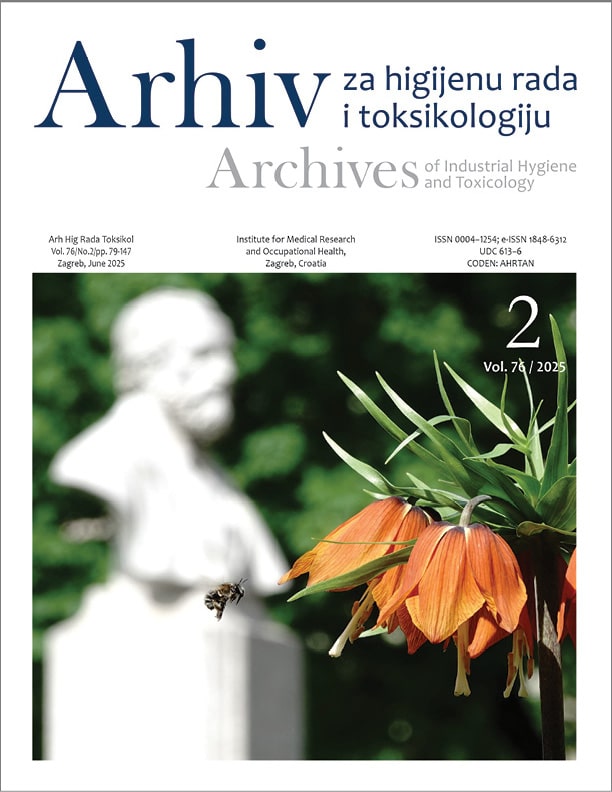Working hours indirectly affect anxiety symptoms through sleep and stress in dentists, physicians, and psychotherapists
DOI:
https://doi.org/10.2478/aiht-2025-76-3954Keywords:
Cohen's Perceived Stress Scale, healthcare workers, helping professions, path analysis, sleep duration, sleep quality, working time, Zung Self-Rating Anxiety ScaleAbstract
The aim of this study was to examine the effects of working hours on anxiety symptoms in highly educated helping professionals, especially through sleep duration, perceived stress and sleep quality. We analysed the results of 172 helping professionals (dentists, physicians, and psychotherapists, 57 % women, average age 25–63 years) who had participated in a larger study examining the effects of working conditions and constitutional factors on the onset of hand eczema. The participants answered a battery of questionnaires, including Cohen’s Perceived Stress Scale, Zung Self-Rating Anxiety Scale, and a set of standard questions on sociodemographic characteristics, working hours, sleep, and job characteristics. They also underwent clinical examination of skin on hands and wrists. Participants reported working between 19 and 90 h a week, with 25.1 % working more than 50 h a week. Several path analysis models used in the study showed that working hours predicted anxiety only indirectly. The final model “working hours → sleep duration on workdays → perceived stress → anxiety symptoms” showed excellent fit [χ2(14)=10.345; P>0.05; CFI=1.000; RMSEA 90 % CI (0.000, 0.054); P>0.05; SRMR=0.028]. Our results indicate that long working hours are associated with shorter sleep duration, which, in turn, is associated with higher levels of perceived stress and subsequently higher levels of anxiety. Long working hours in highly educated helping professionals may therefore put at risk their own health and safety and that of the recipients of their services.
Downloads
Published
Issue
Section
License
Copyright (c) 2025 Patricia Tomac, Iva Japundžić Rapić, Liborija Lugović-Mihić, Jelena Macan, Adrijana Košćec Bjelajac

This work is licensed under a Creative Commons Attribution 4.0 International License.














